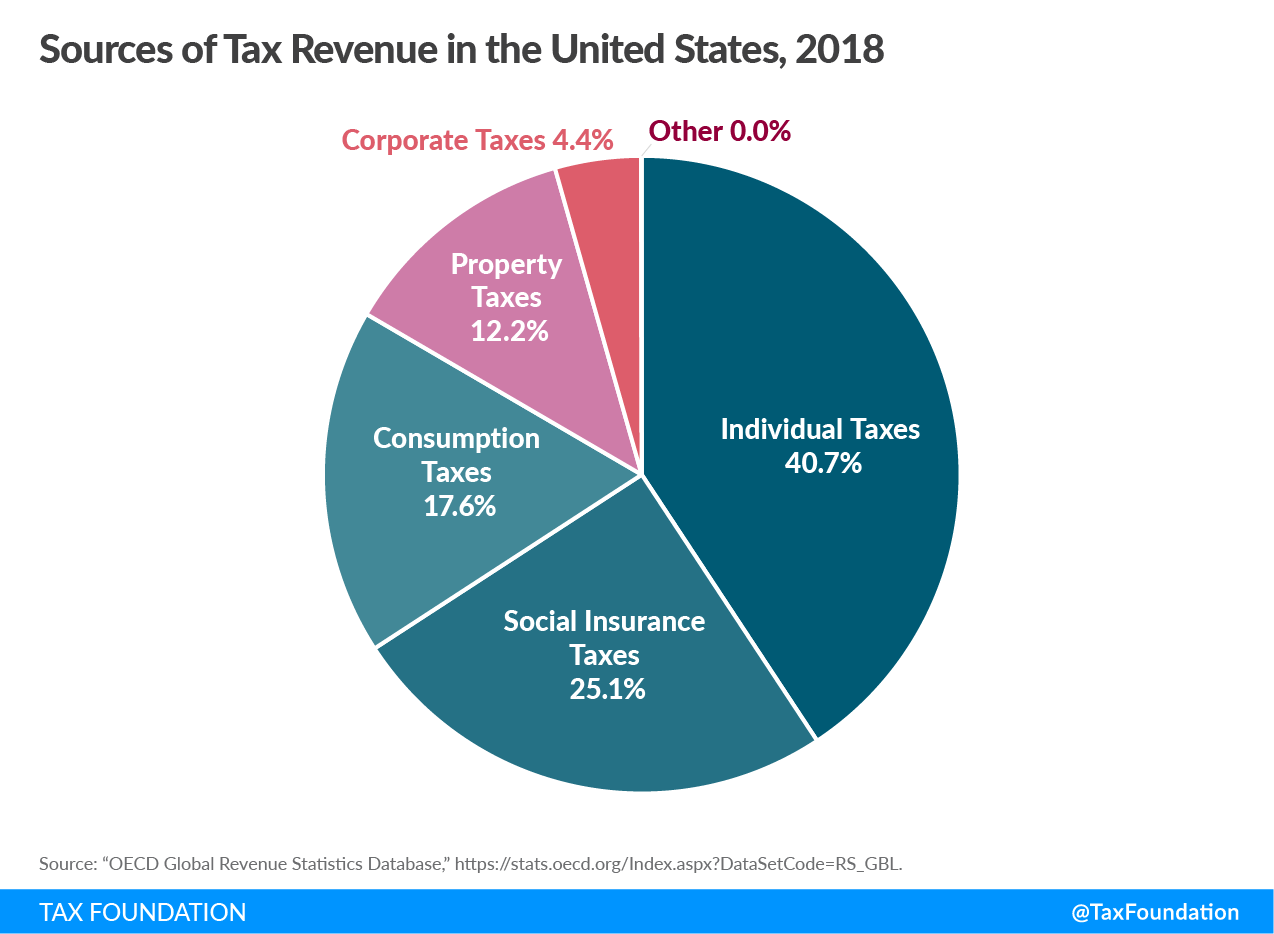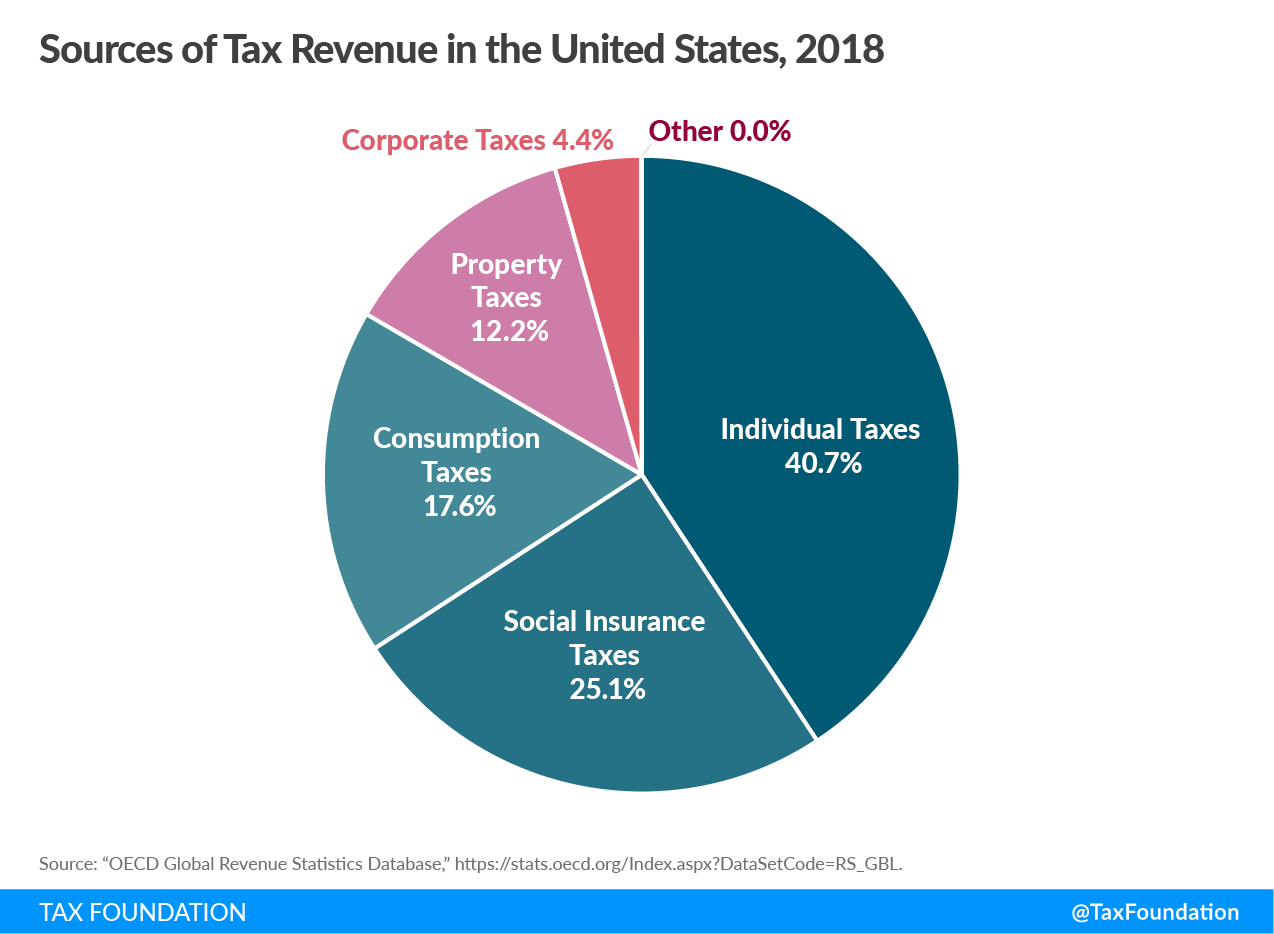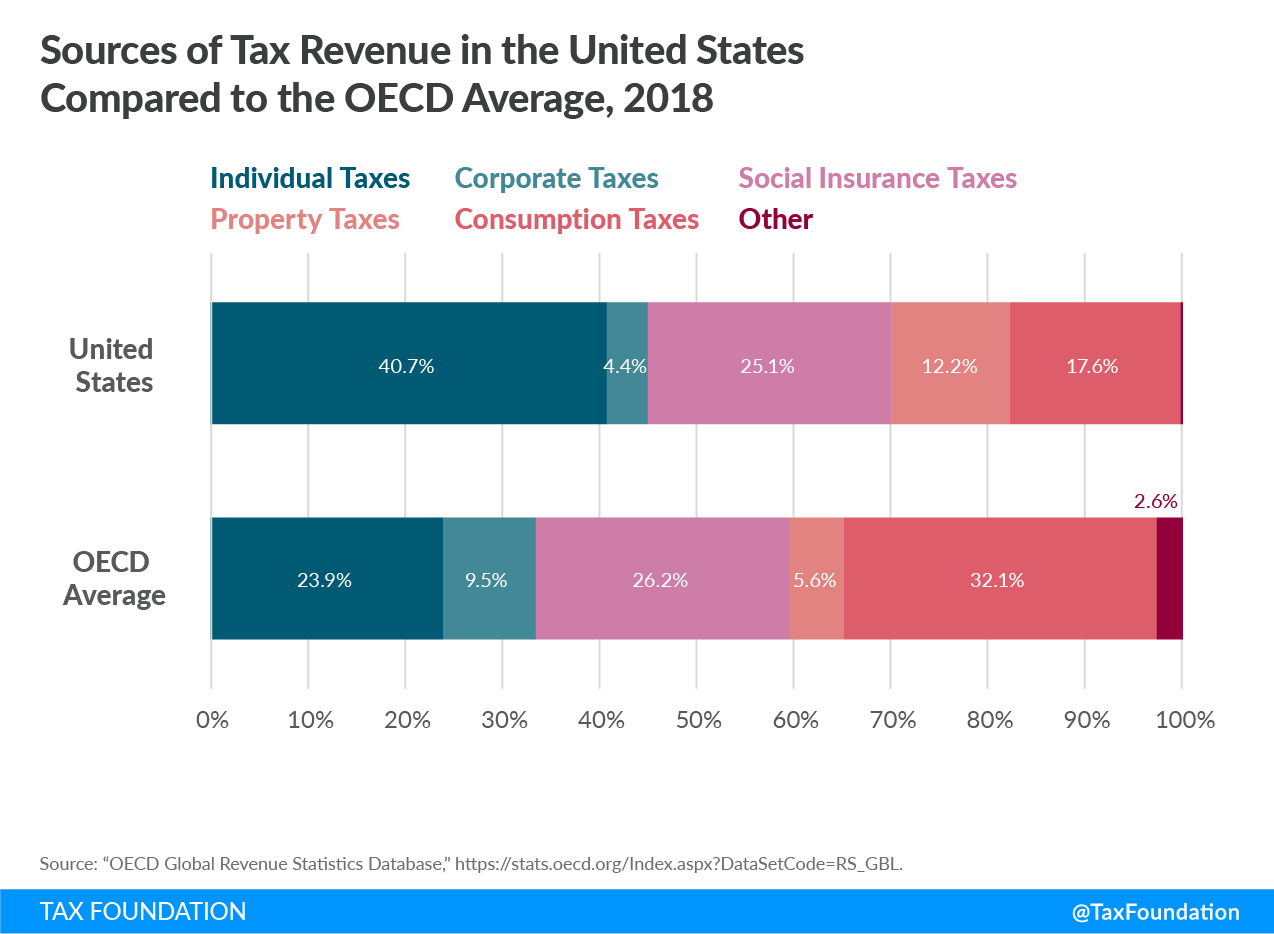Tax Policy – Sources of Tax Revenue: U.S. vs. OECD
A recent report on tax revenue sources shows the extent to which the United States and other OECD countries rely on different taxes for government revenues. Policy and economic differences among OECD countries have created variances in how they raise tax revenue, with the United States deviating substantially from the OECD average.
In the United States, individual income taxes (federal, state, and local) were the primary source of tax revenue in 2018, at 40.72 percent of total tax revenue. Social insurance taxes made up the second-largest share, at 25.1 percent, followed by consumption taxes, at 17.58 percent, and property taxes, at 12.2 percent. Corporate income taxes accounted for 4.35 percent of total tax revenue in 2018, the first tax year after passage of the Tax Cuts and Jobs Act, and 2.11 percentage points less than in 2017.
Compared to the OECD average, the United States relies significantly more on individual income taxes and property taxes. While OECD countries on average raised 23.9 percent of total tax revenue from individual income taxes, the share in the United States was 40.7 percent, a difference of almost 17 percentage points. This is partially because more than half of business income in the United States is reported on individual tax returns. OECD countries on average raised 5.6 percent of total tax revenue from property taxes, compared to 12.2 percent in the United States.
The United States relied much less on consumption taxes than other OECD countries. Taxes on goods and services accounted for only 17.6 percent of total tax revenue in the United States, compared to 32.1 percent in the OECD. This is because all OECD countries, except the United States, levy value-added taxes (VAT) at relatively high rates. State and local sales tax rates in the United States are relatively low by comparison.
Every country’s mix of taxes is different, depending on factors such as its economic situation and policy goals. However, each type of tax impacts the economy in a different way, with some taxes being more adverse than others. Generally, consumption-based taxes are a more efficient source of revenue because they create less economic damage and distortionary effects than taxes on income.
Source: Tax Policy – Sources of Tax Revenue: U.S. vs. OECD



